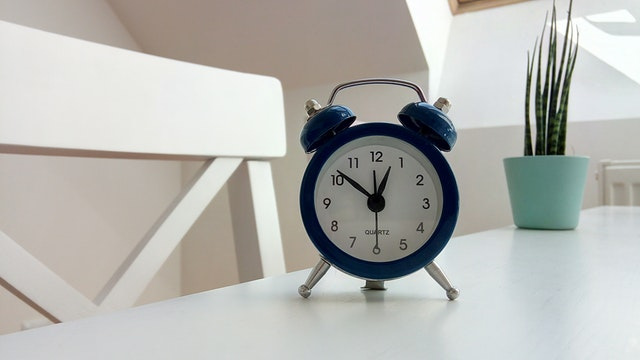On any given day at the office, you might notice employees stifling yawns before heading to the break room to grab some caffeine. You may even see workers nodding off to sleep at their desks, especially during those brutal, mid-afternoon hours after lunch. Not surprisingly, the Centers for Disease Control and Prevention reports that one out of every three people doesn’t get enough sleep. According to the National Sleep Foundation, adults should strive for a minimum of seven hours of slumber each night.
Unfortunately, many people don’t realize the serious consequences of continually skimping on sleep. Besides leaving you feeling tired and sporting dark circles under your eyes, not getting enough slumber can lead to troublesome mental and physical health problems. Also, when you don’t sleep enough, your productivity takes a nose dive. All of these issues can adversely affect companies.
To help you achieve a happier, healthier, and more productive workforce, we’ll first take a look at what sleep deprivation and sleep deficiency are. Then, we’ll outline the problems linked with a lack of slumber. Finally, we’ll show you how to help your team improve their sleep behavior and become more productive employees.
What Is Sleep Deprivation and Sleep Deficiency?
According to the National Heart, Lung, and Blood Institute, sleep deprivation is a condition that happens when you fail to get enough sleep. Sleep deficiency is a broader perception. You experience sleep deficiency when one or more of the following occurs:
- You don’t get enough slumber
- You snooze at the wrong time of the day
- You can’t sleep well or don’t receive all of the various kinds of slumber your body needs
- You suffer from a sleep disorder that keeps you from getting enough sleep or causes poor sleep quality
Your body requires two different types of sleep: REM (rapid eye movement) and non-REM. REM sleep is when dreaming ordinarily happens. Non-REM sleep consists of what is commonly called slow wave sleep or deep sleep. Usually, non-REM and REM sleep happen in a steady pattern of three to five cycles every night. In order to function at a high level and feel well, you need to get enough total sleep and adequate rest of each type. Sleeping at a time when your body is prepared for rest is also vital.
Your body’s internal clock controls when you’re awake and when your body is ready for slumber. Normally, your internal clock sticks to a 24-hour repeating rhythm, known as the circadian rhythm. Interestingly, your circadian rhythm influences every cell, tissue, and organ in your body and how they work. If you don’t sleep enough, snooze at the wrong times, or experience poor quality slumber, you increase your odds of feeling fatigued during the day. You also might not feel alert and refreshed when you wake up.
3 Problems Associated with Sleep Deficiency
During slumber, your body is working overtime to support healthy brain function and maintain your physical health. Here are three problems linked to sleep deficiency:
1. Diminished Mental Health
According to Harvard Health Publishing, a good night’s rest helps encourage both emotional and mental resilience. However, chronic sleep deficiency increases your risk for negative thinking and emotional vulnerability. Prolonged sleep difficulties affect 50 to 80% of patients in the average psychiatric practice. Sleep issues are especially prevalent in patients who suffer from anxiety, attention deficit hyperactivity disorder (ADHD), bipolar disorder, and depression. Research studies conducted on both adults and kids suggest that sleep problems might increase the risk for, or even directly contribute, to the development of certain mental health disorders. Sadly, sleep deficiency has been linked to suicide and risk-taking behavior.
2. Compromised Physical Health
Slumber plays a vital role in healing and repairing your blood vessels and heart. Chronic sleep deficiency is associated with an increased risk of high blood pressure, stroke, heart disease, kidney disease, and diabetes. Sleep helps your body maintain a healthy balance of hormones that make you feel full and hungry (leptin and ghrelin, respectively). When you don’t sleep enough, your level of leptin decreases while your level of ghrelin increases. Because slumber affects your appetite, sleep deficiency is linked to an elevated risk of obesity. Continued sleep deficiency can also alter the way your immune system responds. If your sleep deficient, you might encounter difficulties fighting off common infections.
3. Decreased Productivity
Sleep helps your brain function properly. While you snooze, your brain is preparing for the next day. It’s creating new pathways to help you learn and recall information. Slumber enhances your problem-solving skills. Rest also helps you pay attention, be creative, and make decisions. When employees are sleep deficient, they take longer to complete tasks, make more mistakes, and have a slower reaction time. A Harvard research study discovered that insomnia contributes to the loss of 11.3 days’ worth of productivity every year for the average employee. This equates to $2,280.
 6 Ways to Help Employees Improve Sleep Behavior
6 Ways to Help Employees Improve Sleep Behavior
Now that you’ve seen the harmful effects of sleep deficiency, here are some simple ways to help people improve their sleep behavior and become more healthier, happier, more productive employees:
1. Limit Working Hours
If you have dedicated workers, they might routinely remain at the office long past the time others go home each day. If this is occurring at your office, establishing some boundaries might be in order. For example, Entrepreneur suggests keeping employees from working too many hours by shutting off access to the company’s email server at 5:00pm.
2. Offer Flexible Work Schedules
Workers’ lives outside of the office differ drastically. Therefore, they might benefit from working different hours of the day. Offering a busy parent or caretaker of an elderly relative a flexible schedule might mean the difference between little to no sleep and a good night’s rest.
3. Allow Office Naps
Workplace napping is becoming increasingly popular, and acceptable. If employees are sleep deficient and tired, encourage them to take naps. Getting a quick nap is a wonderful way to boost your energy at the office. Business.com suggests transforming an empty or underutilized meeting room at work into a designated nap space. Stocking this room with sleeping bags, comfortable blankets, and wireless, noise-canceling headphones is a great idea.
4. Establish Walking Meetings
A research study published in the Journal of Clinical Psychology revealed that those suffering with insomnia who spent 45 to 60 minutes in the morning walking experienced a more restful night of slumber. Rather than conducting meetings in a board room, think about hosting them outside or at an indoor track where employees can get their heart-rates up while talking about projects.
5. Invest in Proper Office Lighting
According to the CDC, adjusting lighting in the office can maximize alertness and minimize later effects on slumber behavior. For instance, enhancing illumination to between 750 to 1,000 lux at work for nighttime employees can heighten alertness and diminish tiredness. And it doesn’t have to be expensive to optimize your office lighting.
6. Provide Educational Materials
You can provide employees with educational materials about sleep in newsletters. Posting this important information in common areas is another option. In this information, you might want to cover how many hours of sleep is needed to stay healthy, how to achieve quality slumber, and how to detect sleep disorders.
Better Sleep Could Mean Healthier, Happier, More Productive Employees
Sleep deficiency is a serious, but often overlooked, problem. In addition to making you bleary eyed and cranky, not getting enough slumber can wreak havoc on your mental health, physical health, and productivity. Helping your employees sleep better might boost both their well-being and your bottom line.







